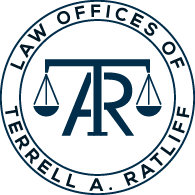TRO/PFA DEFENSE
Domestic violence is a major issue in Pennsylvania, New Jersey, Philadelphia, and around the country, which is a terrible truth. That does not negate the fact that many people utilize false domestic violence charges to obtain an edge in family court and other cases.
Restraining orders (also known as orders of protection) are issued by the courts and mandate a person to refrain from engaging in particular behaviors, such as contacting or assaulting the person who has requested the order. Domestic violence or conflict in personal or familial relationships, such as physical violence, bullying, stalking, harassment, and sexual abuse, are the most common reasons for restraining orders. While New Jersey calls it TRO (Temporary Restraining Order), Pennsylvania calls it PFA (Protection From Abuse).
At the Law Office of Terrell A. Ratliff, we can be the difference between you staying in your home and keeping custody of your children. We will immediately begin working on your defense, as the time between the date of the hearing and the day of the hearing might be exceedingly short.
Temporary Restraining Order (TRO)
Temporary restraining orders are orders granted by the court to safeguard domestic abuse victims partially or completely from their abusers. The Domestic Violence Unit of the Family Division, based at the County Courthouse, or a local police department can file a domestic violence complaint and request a TRO. If the complaint is made locally, it must be submitted at a police station near the plaintiff’s home or shelter, the defendant’s home, or the scene of the domestic abuse.
If the complaint is filed locally, the cops will contact a municipal court judge, who will hear the case and issue a temporary restraining order (TRO) either in person or over the phone. If the complaint is filed with the Family Division, court personnel will visit with the victim to decide if the TRO is appropriate. Following that, the matter will be heard by a court or a domestic violence hearing officer as quickly as possible, and the TRO may be issued.
When a TRO is granted, law enforcement personnel will serve the defendant with the order as well as the date of the final hearing, which will be held within 10 days. All guns in the defendant’s possession will be seized by law police. If the defendant and the plaintiff share a house, the defendant will be obliged to depart and remain elsewhere while the TRO is in place. Whether the defendant owns the house or was “the first” to live there, he or she will be forced to leave.
TROs are in effect until a judge makes a new court order that extends, eliminates, or replaces the previous TRO with a final restraining order.
- Makes it illegal for a defendant to return to the site of domestic violence generally
- A defendant is prohibited from owning any firearms or other specific weapons. (If the defendant is a police officer or in the military, they are allowed to use guns while on duty.)
- Any weapon, even weapons permits, can be searched and confiscated by police at any site where a court has probable grounds to think a weapon is found.
Protection From Abuse (PFA)
The Pennsylvania Protection From Abuse Act explains the procedures for seeking an order, how the police and courts should react to an order, and the laws and restrictions that both victims and abusers should obey. The PFA and the TRO are nearly identical. It’s vital to remember that this law only protects victims who have been abused by a family member, significant other, or other types of intimate relationships. You will need to file for a Sexual Violence Protection Order if you are being abused by a stranger, colleague, housemate, or another person with whom you do not have a close relationship.
While Pennsylvania’s Protection From Abuse Act outlines particular processes for obtaining a PFA, similar orders are also applicable in other states. A PFA is applicable across all U.S. territories and tribal lands under the Violence Against Women Act, which is a federal statute. If you get a PFA from a Pennsylvania court and then move out of state, the order remains in effect, and your abuser must follow all the limitations.
If a court approves a PFA, whether it is a temporary or permanent order, the abuser must follow specified limits, or they will be in violation of Pennsylvania laws and may be jailed. Anyone who disobeys a court order must be arrested by the police.
TRO and PFA Defense
Domestic abuse allegations are commonly used by a spouse or domestic partner to mislead the legal system to obtain an edge in child custody and divorce processes, or to secure sole ownership of a home. If someone obtains a TRO or a PFA against you in New Jersey or Pennsylvania, the protection they receive may place undue and costly weight on you. You may be arrested and imprisoned, and you could lose custody of your children, property, and other belongings. A court issues a restraining order after hearing claims of violence or harmful behavior committed by a family member or domestic partner. It is not necessary to substantiate the charges.
At the Law Office of Terrell A. Ratliff, we can assist you to have a temporary restraining order (TRO) removed or prevent a final restraining order (FRO) from being imposed or being unduly restrictive. The Law Office of Terrell A. Ratliff can help you safeguard your rights and fight unjust judicial decisions that are detrimental to you and your interests.
